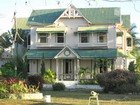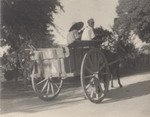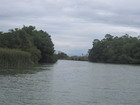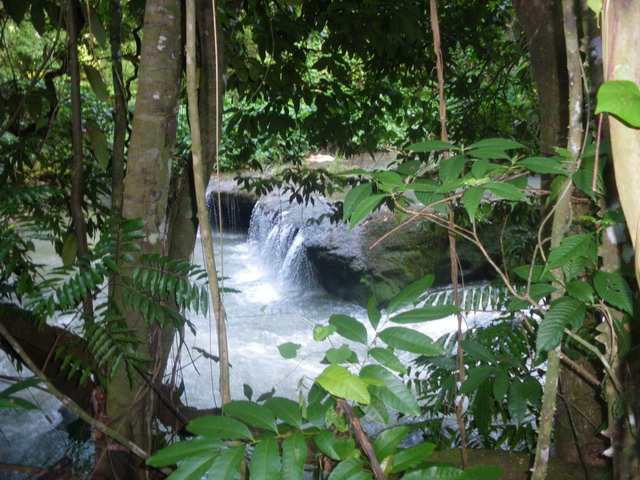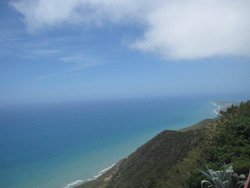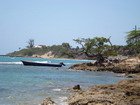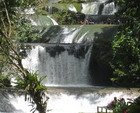Maroons in Jamaica
January 6 Celebration
On January 6 every year, the Maroons in Jamaica hold a special celebration in Accompong, St. Elizabeth. They celebrate the birthday of their great leader Kojo, and commemorate the 1738 signing of a Peace Treaty with the British.
Maroons from across Jamaica and the globe gather in Accompong on this day. The ceremony also attracts Jamaicans from all walks of life, and visitors from many countries.
This slideshow takes a look at this special day. Start at the slide captioned "Gathering under the Ceremonial Kindah Tree, which is where it all starts. Hovering the mouse pointer over an image will pause the show.
There is drumming, singing, drumming, dancing, drumming, drumming. The Gumbay (Maroon square drum), the Rattling drums and the Bass drums underpin the parts of the ceremony that are open to the public. Driving, infectious rhythms. There are singers who dance and dancers who sing - traditional Maroon songs, many of them using African words exclusively.
The Abeng (cow horn) punctuates the music with its distinctive voice, and unquestionable authority.
A black male pig, raised specially for the occasion, is cooked without salt. It is seen as a privilege to be given a taste.
White rum is used liberally to anoint the drums, the singers, the dancers, the drummers, the watching crowd, and to satisfy the ancestral spirits. This heightens the tension in the music, and emotion rises up in crowd. As the music builds, singers dip, bend, fall to the ground, seemingly transported to another place.
Who are the Maroons?
The Maroons In Jamaica today are the descendants of slaves who freed themselves and established independent communities in Jamaica's interior.
In 1655 while the British were trying to oust the Spanish from Jamaica, many slaves escaped from their Spanish owners, or were set free by the Spanish in order to help fight against the British. These were the earliest Maroons, who were mostly African born, or of mixed African and Taino blood.
They fled to the mountains, and were joined by other escapees over time. The Maroons spent years fighting to retain their freedom, forcing the British to acknowledge them as a formidable enemy. In 1738, the commander Kojo (Cudjoe) of the Accompong Maroons, signed a Peace Treaty with the British, in which the Maroons were given land and the right to their freedom.
Return from Maroons in Jamaica to Home Page






